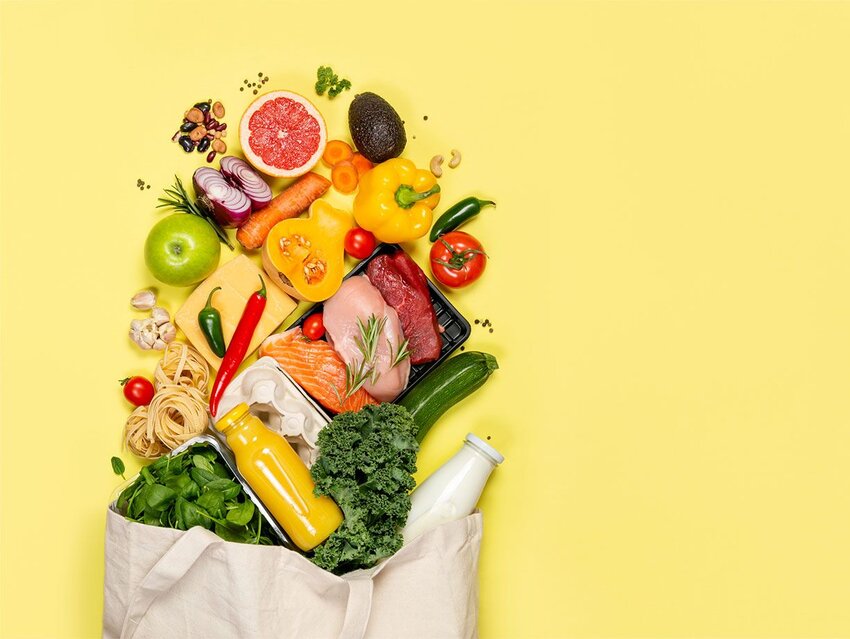Ever wonder what makes an olive oil “extra-virgin,” or why a cut of beef is “prime”? As foodies know, the quality of ingredients makes a big difference in how a dish tastes, and these words have specific meanings in regard to the items they’re describing. Let’s take a tour around the supermarket to investigate why certain foods come with their own designated adjectives, and what the descriptors mean.
Extra-Virgin Olive Oil
With olive oil, “extra-virgin” describes the production process — any oil that’s obtained from the fruit of olive trees is an olive oil, but what differentiates an extra-virgin olive oil from a virgin olive oil, or just plain olive oil, is that extra-virgin olive oil is unrefined. This means it hasn’t been processed with chemicals or heat. An unrefined extra-virgin olive oil will retain high levels of oleic acid, which is what gives the oil its antioxidant and anti-inflammatory properties, along with its rich golden color and distinctive peppery flavor.
Prime Beef
“Prime,” as a descriptor for beef, comes from the U.S. Department of Agriculture (USDA). There are eight grades of beef given by the regulatory agency, the top three of which — “prime,” “choice,” and “select” — are likely the most recognizable to American grocery shoppers. The grade is assigned based on a combination of marbling and maturity of the cow, and prime beef is the highest quality in terms of tenderness, juiciness, and flavor. (“Marbling” describes the flecks of fat within the meat that give it flavor and tenderness.)
Jumbo Eggs
If a recipe calls for large eggs, that’s not a guesstimate — it refers to a specific size designation of egg. Eggs are classified in a range of sizes, from “peewee” to “jumbo.” These size variations have to do with the chicken laying the egg. In general, the older the chicken, the larger the egg. Chickens can lay eggs from about 18 weeks old, albeit very infrequently. Peewee eggs come from extremely young chickens, whereas jumbo eggs (weighing 2.5 ounces or more) come from fully mature, healthy chickens in their prime.
Other factors that can impact the size of an egg are the weight of the chicken, its diet, and the conditions the chicken lives in. For example, hens exposed to more light before 19 weeks of age will start laying eggs earlier, meaning their eggs will be smaller. Large eggs (about 2 ounces per egg) are what most recipes call for, and large and extra-large eggs (2.25 ounces) are stocked most commonly at grocery stores.
Following size guidelines is important in baking because the size of the egg corresponds to an amount of liquid. A large egg contains about 3.25 tablespoons of liquid, and an extra-large egg is about 4 tablespoons of liquid, so a substitution of four extra-large eggs for four large eggs can drastically change a recipe.
Heavy Cream
What makes cream “heavy,” as opposed to just cream? It has to do with fat content. Heavy cream is homogenized, meaning the fat it contains is emulsified and mixed well into the milk, giving it a thick consistency. Manufacturers add specific proportions of milk fat to the milk, and heavy cream contains no less than 36% milk fat.
Kosher Salt
Kosher salt is not required for adherence to Jewish culinary standards. The seasoning got its name because the large size of the salt crystals draws moisture out of meat faster. This does help with koshering meat, the process of preparing meat for kosher consumption standards, but kosher salt has grown popular in culinary circles because it is standardized and reliable. Unlike table salt, which contains iodine to make it easier to pour, the large grain of kosher salt makes it easier to manipulate by hand when cooking, which decreases the chance of oversalting the food.
Featured image credit: a_namenko/ iStock

